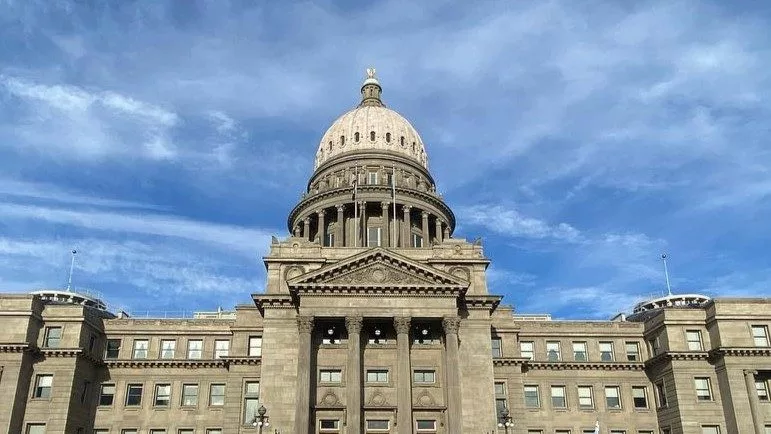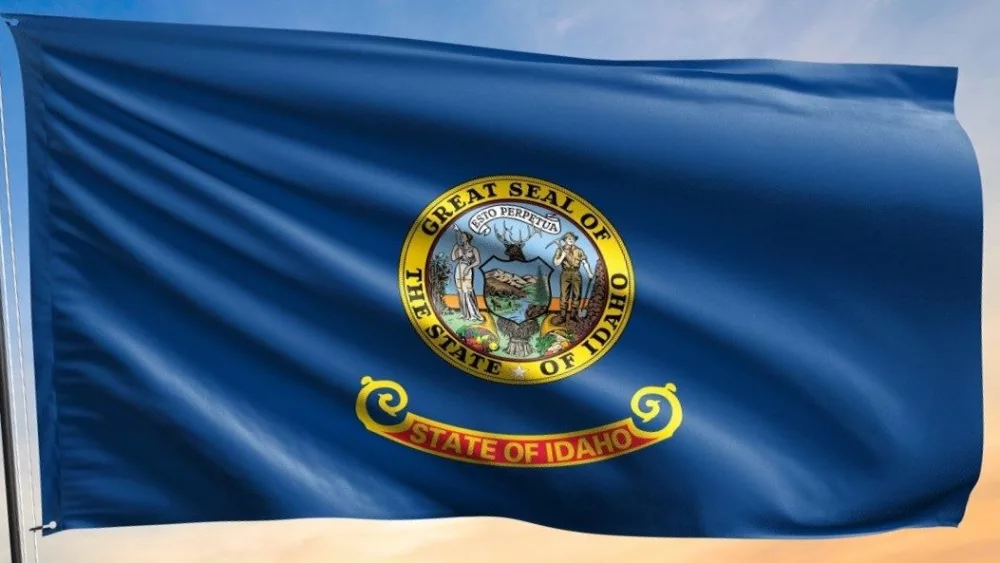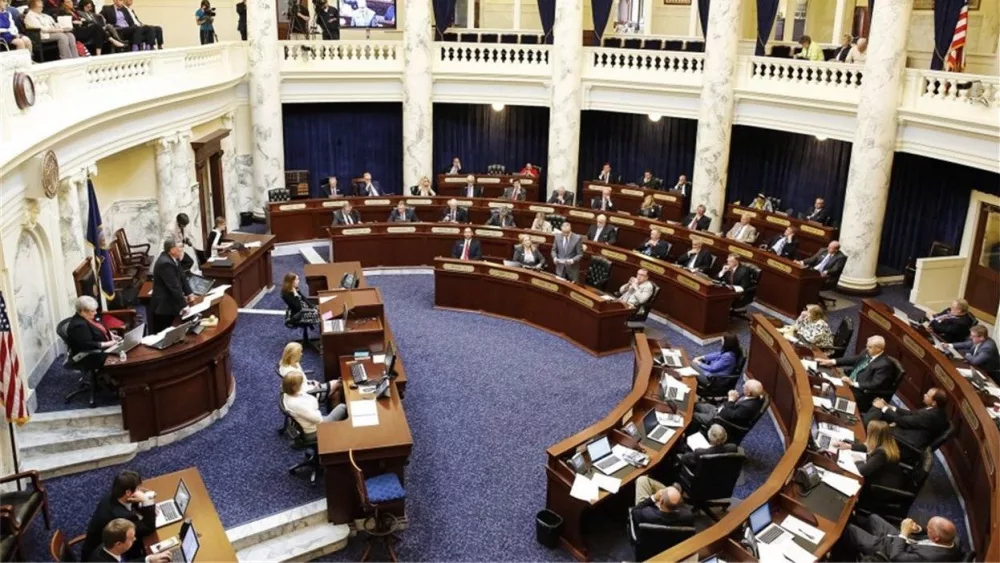BOISE, ID – A bill that could repeal voter-approved Medicaid expansion narrowly cleared its first chamber of the Idaho Legislature.
After an hour and a half of debate Wednesday, the Idaho House on a narrow 38-32 vote passed a Medicaid expansion reform-or-repeal bill.
House Bill 138, by Rep. Jordan Redman, R-Coeur d’Alene, requires Idaho to enact 11 Medicaid policy changes or repeal Medicaid expansion — a policy that lets more low-income Idahoans be eligible for the health insurance assistance program.
Many critics and legislators who opposed the bill said it would likely repeal Medicaid expansion. Two-thirds of the 24 lawmakers who debated the bill on the House floor debated against it.
Many of the eight lawmakers who debated in favor of the bill called the bill’s reforms needed to tamp down the rising budget of Idaho Medicaid, which they said could leave less funds for other state budget areas like education and transportation.
“This bill is to put safeguards in place so that we can keep Medicaid expansion, but keep it on our terms and keep it so that it’s containable and sustainable,” Redman said.
About 89,300 Idahoans are enrolled in Medicaid expansion, according to the Idaho Department of Health and Welfare.
“This bill is designed to repeal Medicaid expansion — no matter the intentions,” Rep. Ben Fuhriman, R-Shelley, told lawmakers. “And I just don’t know how we can do that right now with all of these unknowns.”
The bill now heads to the Idaho Senate, where it could receive another full committee hearing before a possible floor vote. To become law, Idaho bills must pass the House and Senate and avoid the governor’s veto.
Critics think the bill will repeal Medicaid expansion
Idaho needs approval from the federal government to implement many of the policy changes — like work requirements, capping expansion enrollment, and kicking people off Medicaid expansion after three years — that Redman’s bill would require.
But several of the bill’s proposed policy changes have never been attempted or have even been rejected, even during President Donald Trump’s first term, an analysis by Idaho Voices for Children found.
If the bill passes, and if any of its policy mandates aren’t in effect by July 2026, the bill would repeal Medicaid expansion.
“This is exactly state sovereignty,” Redman said. “This is Idaho taking the lead, putting guardrails in and telling the federal government what we want to do. And that’s the reason that we have that timeline in there, because we’re … forcing the federal government.”
Redman has repeatedly defended his bill against critiques that call it an attempt to repeal Medicaid expansion with more steps. The bill, Redman says, is intended to reform Medicaid and keep expansion in place to save money in Idaho’s rising Medicaid budget.
In 2018, nearly 61% of Idaho voters approved Medicaid expansion. The successful ballot initiative came after years of legislative inaction to address a health insurance assistance gap for a population commonly called the “working poor.”
Idaho House Minority Leader Ilana Rubel, D-Boise, urged lawmakers to respect the will of the voters, and reminded lawmakers how Idahoans suffered before Medicaid expansion.
“We had tens of thousands of people in the gap. No matter what they did, they couldn’t get coverage. People were dying of preventable illnesses,” Rubel said.
If Idaho passed the bill, she said it would cost taxpayers $30 million to $40 million more than keeping Medicaid expansion as is.
Republican lawmaker says she’s never seen so much faith in the federal government
Rep. Dori Healey, R-Boise, told the House she had never seen so much faith in the federal government. She said she believed many of the policies in the bill would provide needed financial responsibility. But she said she thought this was a “really bad way to do it.”
“I’ve heard in this body so many times ‘state sovereignty.’ But here we are just handing it back to our federal government — only when it’s convenient for us,” Healey said. “So that when they don’t approve those 11 waivers, we can say, ‘We tried. But, you know what, the federal government didn’t approve it. Sorry.’”
Redman has said the Trump administration is likely to approve his bill’s policy changes. But Idaho Voices for Children Senior Policy Associate Hillarie Hagen told the Sun in an interview Tuesday there’s no chance all 11 policy changes would be approved.
Rep. John Vander Woude, R-Nampa, sponsored a separate bill to flat out repeal Medicaid expansion that hasn’t received a committee hearing. He said Redman’s bill “steps us in the right direction to give us a lot better solutions.”
And he told House lawmakers that people he talks to widely believe the new Trump administration is different.
“I believe that the federal administration is looking for solutions, looking for — not cutting and getting rid of it — but looking for better solutions,” Vander Woude said.
And Redman noted that the Legislature would return in January, when the 2026 legislative session would start.
“That would be a great time to evaluate how many waivers have been granted. My hope and my goal, and what I believe, is that we’re going to have all of them granted,” he said. “But if we don’t, that is totally the prerogative of this body to take those things up.”
Supporters critique rising cost of Idaho Medicaid. But recent financial analyses find steady growth and savings.
The federal government pays 90% of the costs of Idaho Medicaid expansion, higher than the federal government’s typical Medicaid contributions to states that is usually around 70% of program costs.
For years since nearly 61% of Idaho voters approved a law expanding Medicaid through a ballot initiative, many Idaho Republican lawmakers have said Medicaid’s rising costs must be controlled.
But a recent fiscal analysis found Idaho Medicaid’s costs grew slower than other Idaho state government programs. And extra federal funds Idaho gets for Medicaid expansion generates $1.5 billion in economic impact and more than 9,300 jobs, another analysis found.
Redman said Idaho’s initial projection for Medicaid Expansion’s costs was almost $1 billion short of what the program’s costs could be in Idaho’s fiscal year 2026, which starts in June.
Idaho Gov. Brad Little’s proposed budget calls for $1.36 billion next fiscal year for Idaho Medicaid expansion.
Co-chair of the Idaho Legislature’s powerful budget setting committee, Rep. Wendy Horman, R-Idaho Falls, said the program has a “runaway budget” that isn’t sustainable.
“Nothing we have tried so far has worked. So, I’m willing to take the risk. Because I think the risk of not acting leaves us in a very vulnerable position to provide essential services to our state, including those most vulnerable, who do need medical attention and have no capacity to obtain it for themselves,” she said.
Rep. Cornel Rasor, R-Sagle, said the bill would bring needed sideboards. And, responding to another lawmaker who noted hospitals pay taxes that support Medicaid, Rasor told lawmakers “we need to remember the forgotten man.”
“The one we came here to champion; the one we came here to defend. The man who’s pulling the 300-million bottom plow; the woman that’s pulling that plow with him. … That’s paying the bills, that’s paying those state hospitals and paying for this Medicaid,” he said.
Several lawmakers who debated in favor of the bill said it wouldn’t affect children, who usually make up about half of the over 300,000 Idahoans on Medicaid. But Rep. Dan Garner, R-Clifton, said it would — even if kids aren’t on expansion.
“Because families, the working poor, the poor families in my district have to make choices. And the choices they might make is whether or not to take their — their kid in or get food,” Garner said.
This story first appeared on Idaho Capital Sun.





